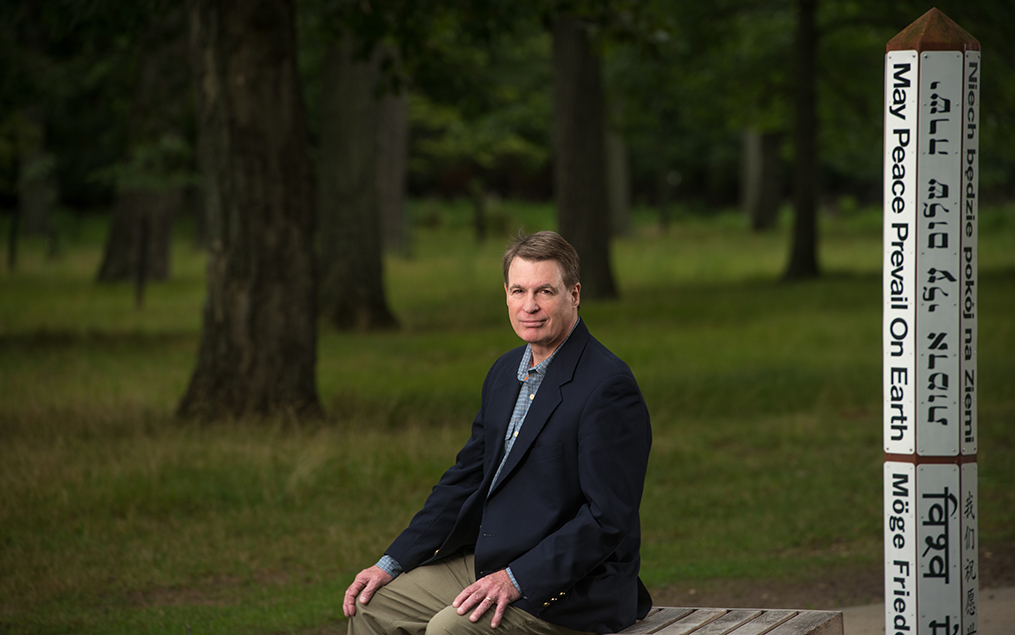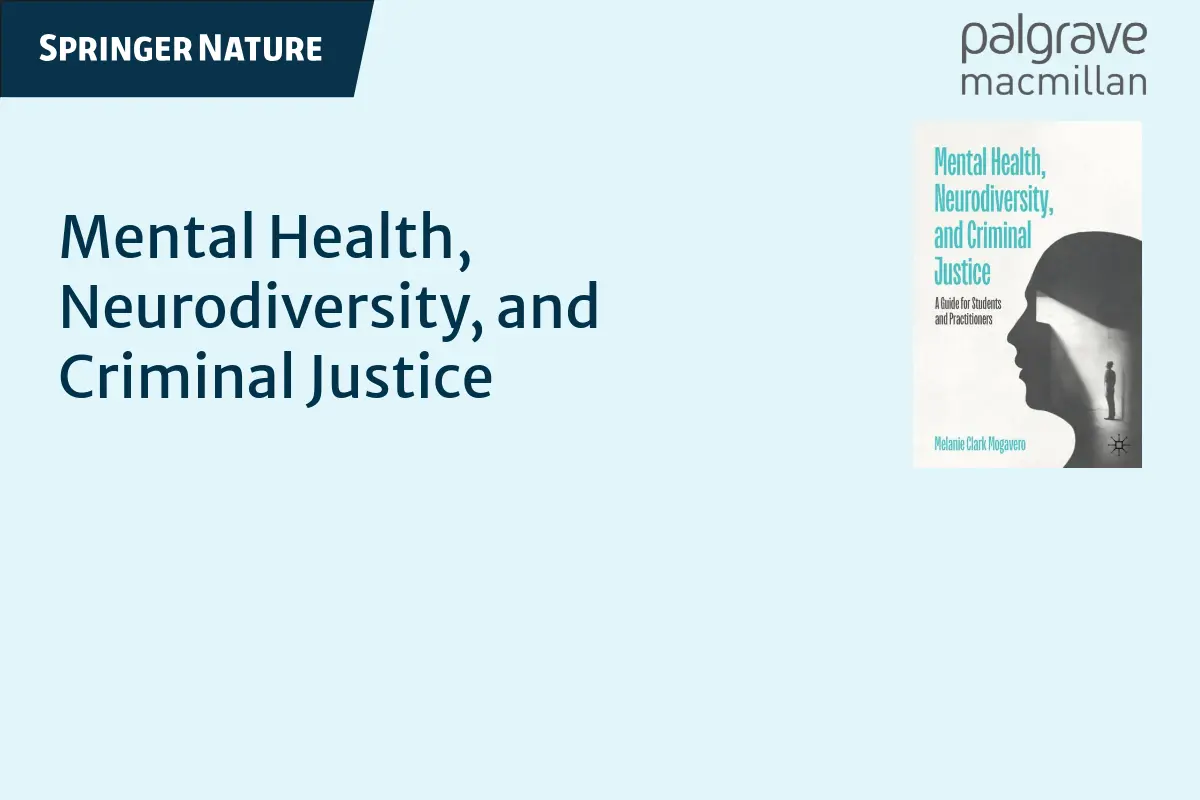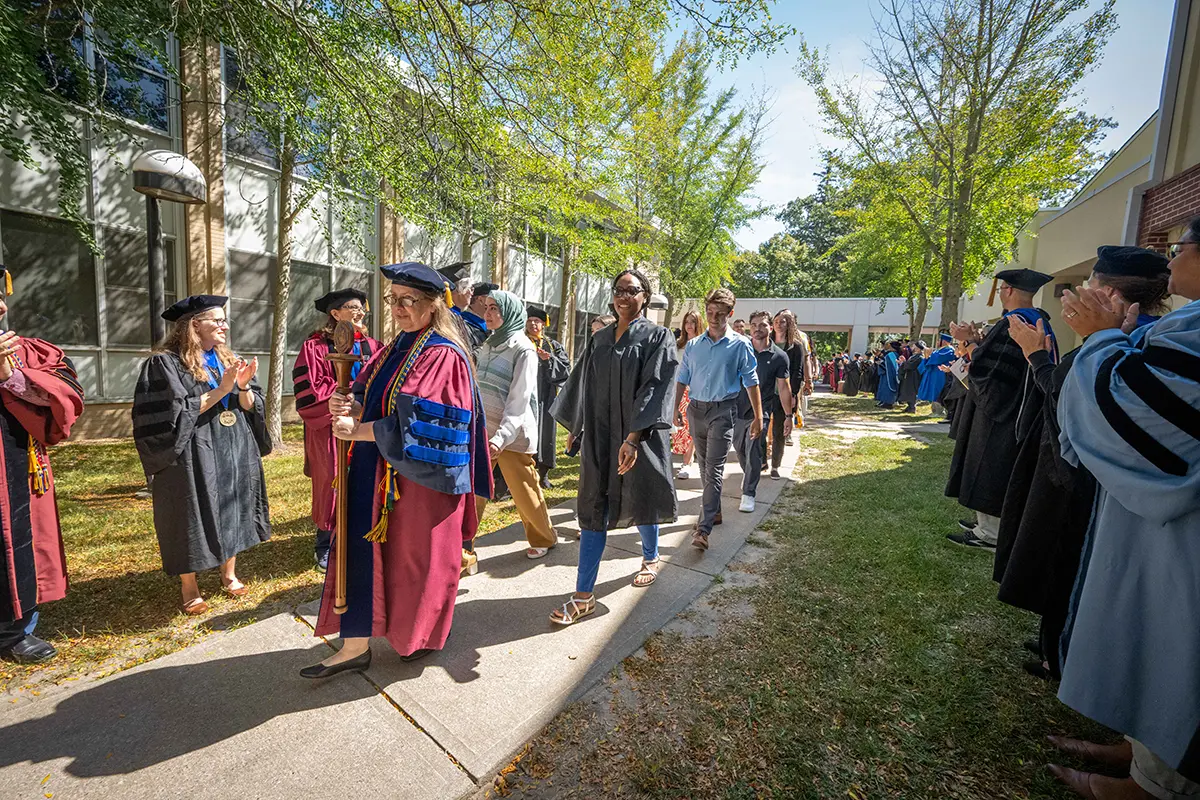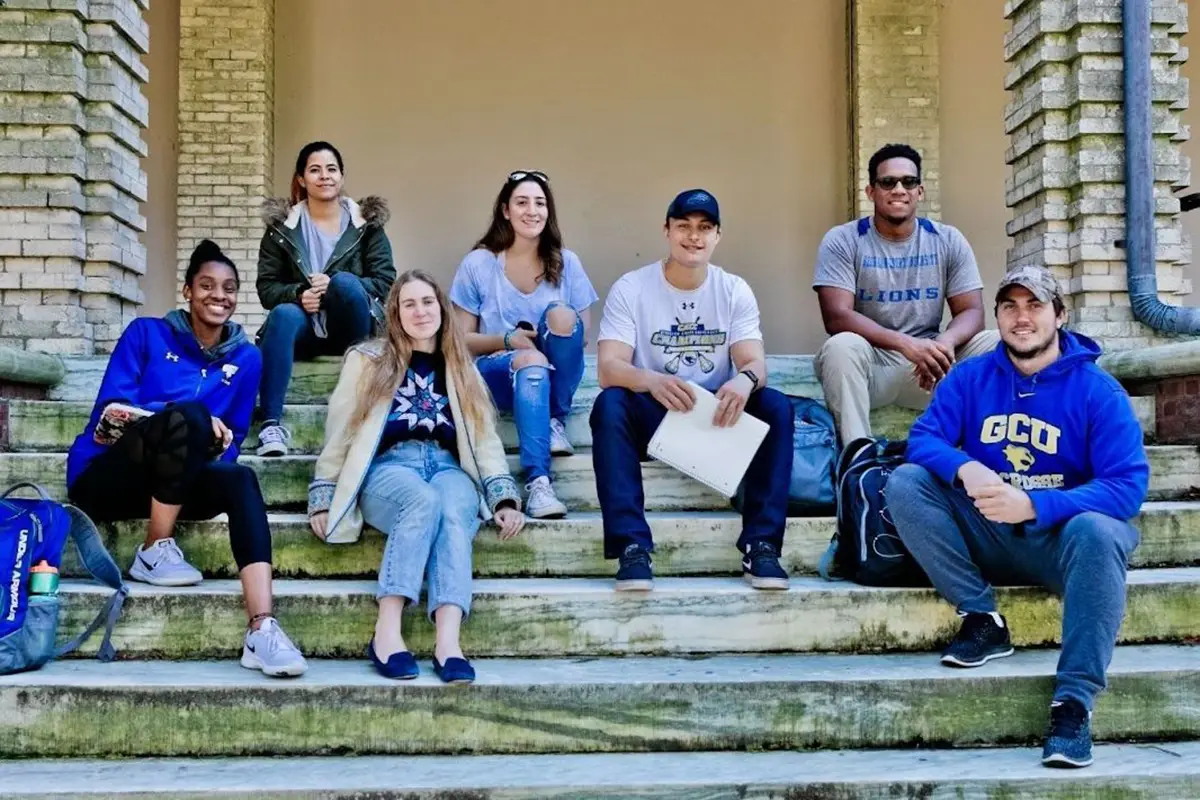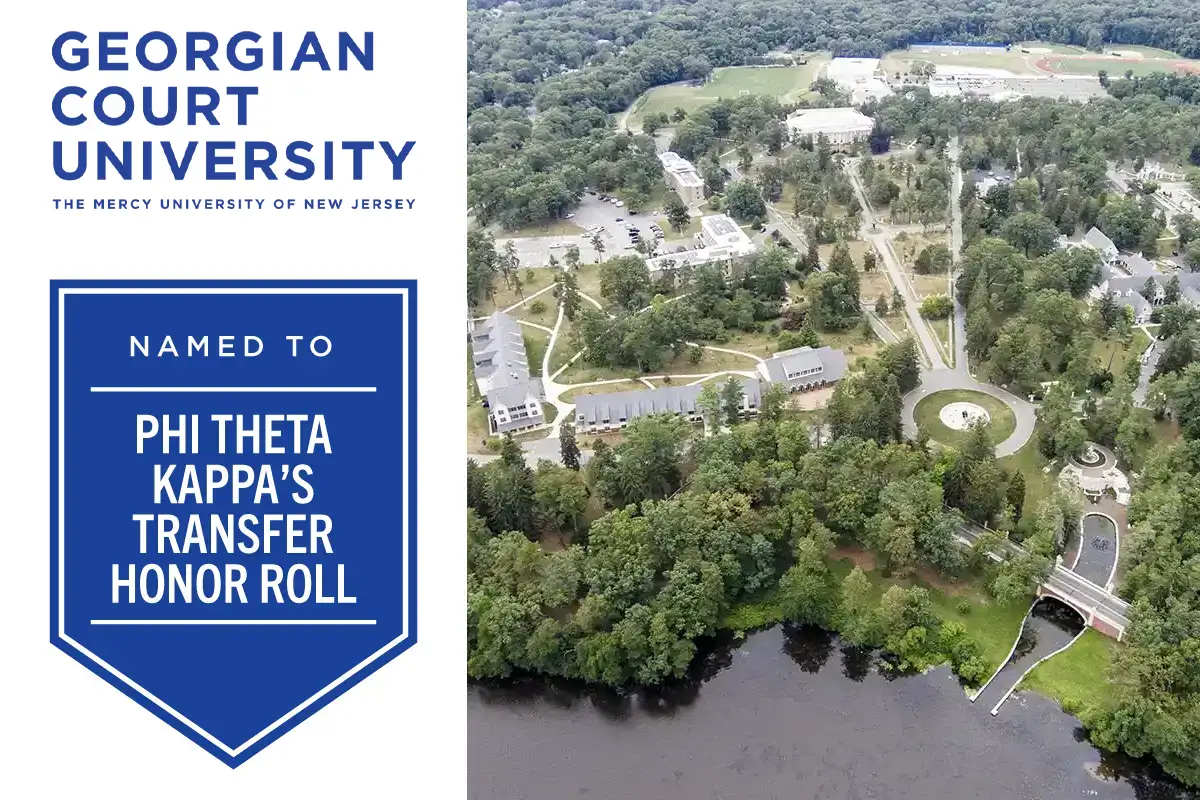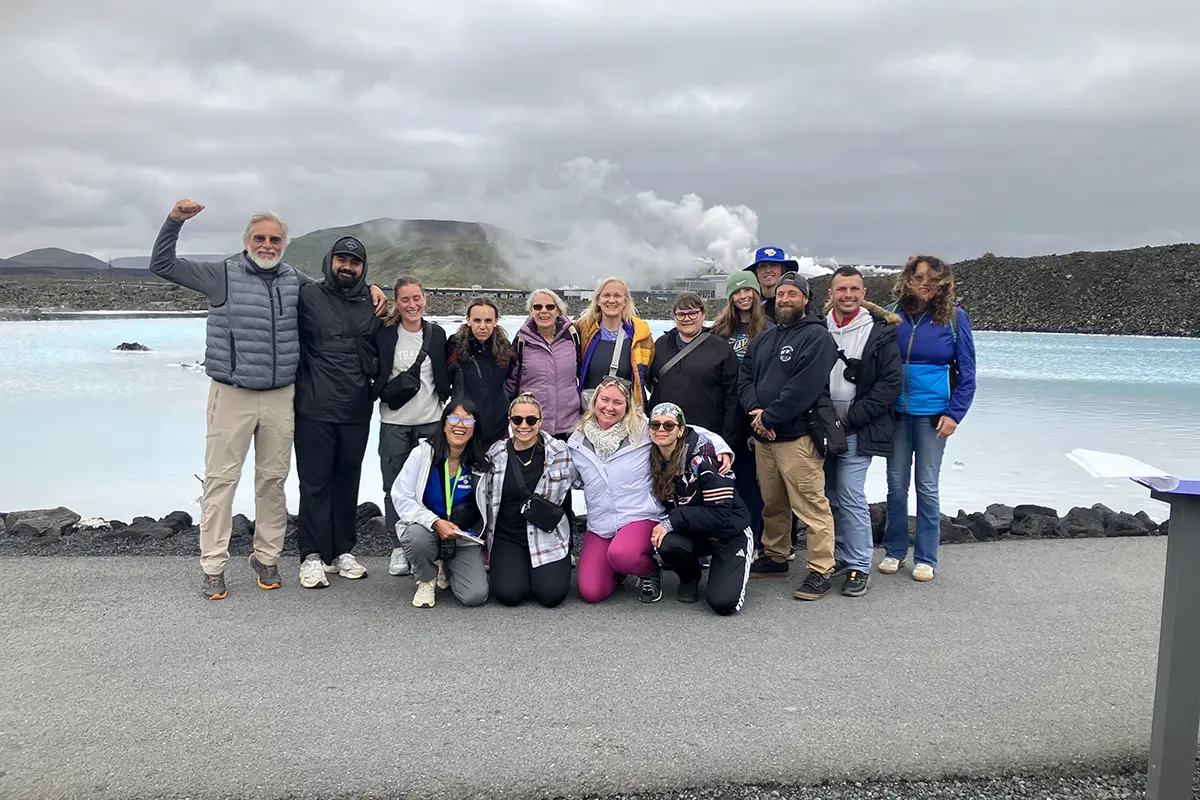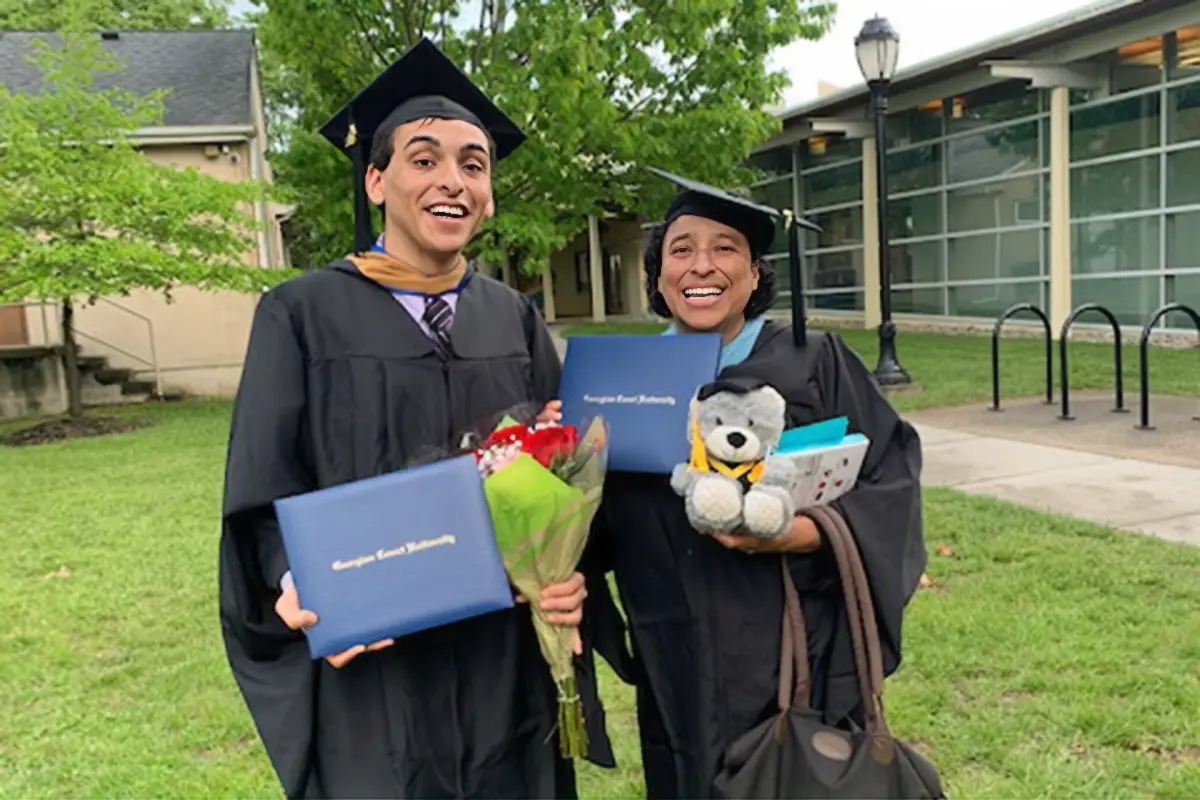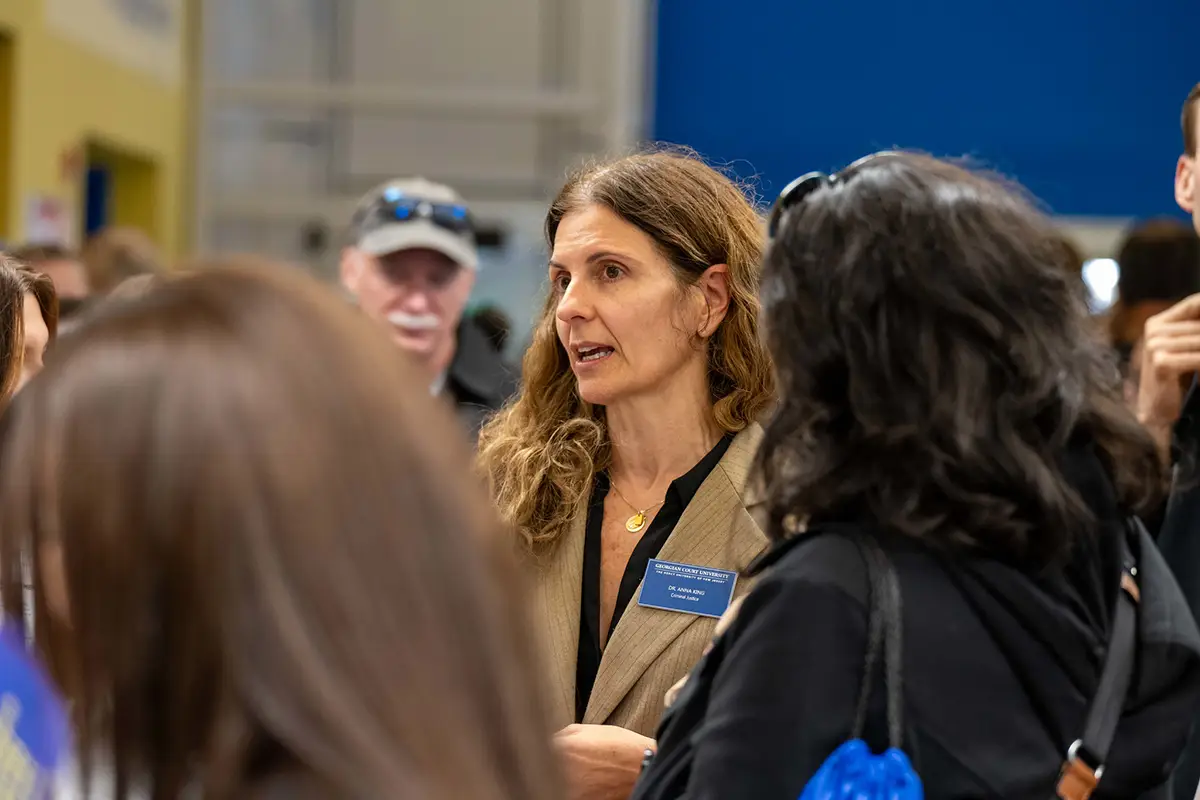Scott H. Bennett, Ph.D., Professor of History & Chair, Department of History, Geography & Political Science
Photo: Russ DeSantis
When Provost Bill Behre, Ph.D., announced his name as the 2017 recipient of the Virginia Graham ’31 Award for Teaching Excellence, Scott Bennett, Ph.D., admits that he was “both gratified and humbled.”
“Gratified, because teaching has been my life’s vocation and passion,” he says. “Humbled, because there are so many outstanding teachers at Georgian Court, who are no less deserving.”
Early in life, Dr. Bennett thought he would become a labor attorney. Long interested in labor history and radicalism, he ultimately turned away from law school in favor of a career in education, which would allow him to explore his interest in politics, history, and other subjects. After earning his master’s degree in teaching, he spent a decade in El Salvador, Italy, and Denmark. “This experience deepened my interest in the world and in America’s role in the world,” he says.
When he began his Ph.D. program at Rutgers University, his advisor suggested a dissertation on radical pacifism. He had intended to write his dissertation on post-1945 American socialism—a continuation of his master’s thesis on the Socialist Party in the 1930s. At first, he rejected research on radical pacifism because he considered it irrelevant to power relationships between nations and social classes. However, when he started to look into it more, he changed his position.
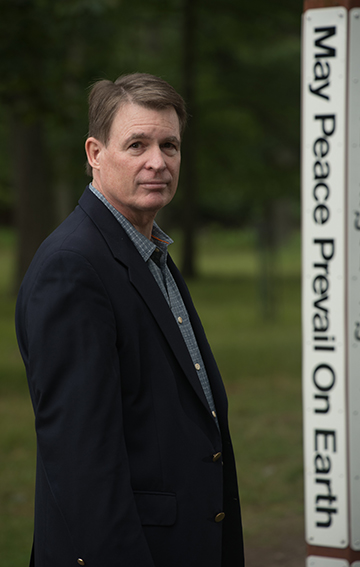
“Radical pacifism combined my interest in American radicalism, social movements, foreign policy, and the role of grassroots citizen diplomacy and engagement in the world. Moreover, in addition to working for peace and nonviolence, radical pacifists were active in various social reform movements, including the civil rights, environmental, and women’s movements—and all of this interested me,” says Dr. Bennett. “Many pacifists displayed enormous courage, commitment, sacrifice, and heroism to advance peace and justice in America and the world—and their stories are often compelling,” he says.
In the late 1990s, he was teaching in Chicago and commuted by airplane each weekend to New Jersey, where his wife and young daughter lived. After two years, he decided to seek a job in New Jersey and found an opening at Georgian Court. He joined the GCU faculty in the fall of 2001.
“Once here, I found GCU’s great colleagues, sense of community, and commitment to social justice very appealing,” he recalls.
Dr. Bennett, who also received a 2014 Fulbright Award to teach and conduct research in the Netherlands, as well as several awards for teaching at the high school level. In 2014, he also led GCU’s World War I Conference, which commemorated the 100th anniversary of the conflict. The conference featured noted historian Harriet Hyman Alonso from the City University of New York, and Adam Hochschild, author and co-founder of Mother Jones magazine. Dozens of U.S. and international scholars also attended conference discussions and presentations on wartime dissent and social activism.
Today, Dr. Bennett is working on three books, and he maintains that pacifism and nonviolence remain important and relevant.
“In a world stocked with weapons of mass destruction—nuclear, chemical, and biological—the risk of human extinction makes peace and nonviolent conflict resolution an existential imperative,” he says. “Along these lines, Albert Einstein once quipped, ‘I know not with what weapons World War III will be fought, but World War IV will be fought with sticks and stones.’”
This article also appears in Faculty Focus 2017, Georgian Court’s report of faculty scholarship and creative activity. Story contributed by Gwen Moran.

